In our mission, we're supported by a world renowned Hon. Advisory Board consisting of thought leaders from MIT, Stanford University, Tufts University, the Indian Institute of Technology (IIT), NASA, and the U.S. Green Building Council.
We're also actively supported and advised by the U.S. Government — Department of Energy, Lawrence Berkeley National Laboratory, National Renewable Energy laboratory, Oak Ridge National Laboratory, and The Council of Scientific & Industrial Research (CSIR) Laboratories in India. |
| Our Honorary Board of Advisors |
|
|
| |
|
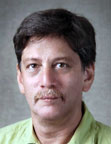 |
Dr. Michael G. Apte
Lawrence Berkeley National Laboratory
Michael is the Group Leader and Staff Scientist in the Commercial Ventilation and IAQ Control Group in the Indoor Environment Department. Currently Leader of the Indoor Environmental Quality Element of the California Energy Commission (CEC) funded High Performance Commercial Building Systems (HPCBS) Program and of a Laboratory Directed Research and Development (LDRD) particle exposure instrumentation development project. In this position he has also been in charge of the design, implementation, and data analysis as well as quality assurance and quality control for projects contracted with the U.S. Department of Energy, the U.S. Consumer Product Safety Commission, the U.S. Environmental Protection Agency, the California Tobacco Related Disease Research Program, and the East-West Center (EWC, Honolulu, HI).
|
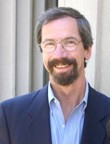 |
Prof. Charles L. Cooney
Professor of Chemical & Biochemical Engineering at MIT
Dr. Cooney is Co-Director of the Program on the Pharmaceutical Industry at MIT. He earned both his master's degree and Ph.D. in Biochemical Engineering from MIT, and joined the faculty in 1970. Currently, his research group is pursuing the fundamentals of absorption and filtration in downstream processing, the use of genetic engineering to solve process problems, and the application of benchmarking to measure performance in pharmaceutical manufacturing. He has worked with several biotechnology companies in their early stages, such as Genzyme, Microbia, Bioprocessors and Dyax; as well as with larger pharmaceutical and chemical companies. He is a director at Genzyme, Cuno, and BioCon India.
|
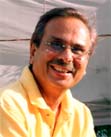 |
Mahendra K. Daga
Chairman & Managing Director of Orient Ceramics and Industries Ltd.
Orient Ceramics, a company quoted on the Indian National Stock Exchange, is among the leading manufacturers of ceramic floor and wall tiles.
Besides being a doyen of the tile industry, Mr. Daga is a keen environmentalist. As early as 1971 he banned smoking, felling of trees, and mandated judicious use of water in his organization. Every monsoon, saplings are planted in the factory premises.
He is an avid award winning gardener, having won all the coveted awards in horticultural shows held in Delhi and NCR. He has the unique distinction of winning the Chairman Noida Challenge trophy 5 years running. He has also won numerous awards for household plants, vegetables, herbs, cacti and succulents. Mr. Daga also writes and delivers talks in the field of horticulture. He is currently President of the Chrysanthemum Society of India and Director of The Indian Society of Cactus and Succulents.
|
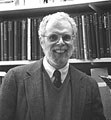 |
Prof. Leon R. Glicksman
Professor of Building Technology & Mechanical Engineering at MIT
Leon R. Glicksman is a professor of mechanical engineering and architecture at the Massachusetts Institute of Technology, where he joined the faculty in 1966. Prof. Glicksman's has worked on research and consulting related to energy-efficient building components and design, natural ventilation, sustainable design for developing countries, and design tools.
He has published more than 200 technical papers, earning both the ASME Melville Award and the ASME Knapp Award for his work. He helped found and continues to lead MIT's building technology research group, where he has influenced issues of energy efficiency and sustainable development. Glicksman holds several U.S. patents, has consulted extensively for major companies, and has been a leader in engineering education, developing new technical approaches for the education of architecture students and creating new approaches to teaching thermal modeling.
|
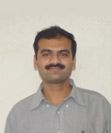 |
Prof. Vishal Garg
Assistant Professor & Head, Centre for IT in Building Sciences, International Institute of Information Technology, Hyderabad
Dr. Vishal Garg's doctoral work at the Indian Institute of Technology (Delhi) dealt with application of fuzzy logic control in buildings. Subsequently, he joined IIIT Hyderabad as assistant professor. Vishal has worked extensively on fiber optic based lighting, fuzzy logic based task control of lighting and heating, venetian blind control, and smart occupancy sensors. His current research includes development of a protocol and framework for wireless control of devices in buildings.
At IIIT Hyderabad, he lectures in the area of building science on Building Automation & Controls, Intelligent Buildings, Energy Simulation using EnergyPlus, Lighting Design & Technology.
|
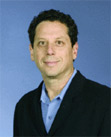 |
David Gottfried
President, WorldBuild Technologies, Inc. and Founder of the U.S. Green Building Council
David is the founder and was the first staff president of the U.S. Green Building Council, the leading green building organization in the world. He has more than two decades of multidisciplinary experience as a real estate developer, construction manager, and sustainable development management consultant. As the President of WorldBuild Technologies Inc., he has consulted for both government and business. Public sector clients have included the State of California, the cities of San Diego and Santa Monica, and the U.S. Navy. Business clients have included Starbucks, Williams-Sonoma, DreamWorks, Genentech, San Diego Gas & Electric, Yahoo, Johnson Controls, and Skidmore, Owings & Merrill Architects.
He received his degree in Engineering and Resource Management from Stanford University and is a regular lecturer for Stanford's Civil Engineering Department, is a USGBC LEED™ Accredited Professional. He is the founding Chairman of the American Society for Testing and Materials Green Building Committee, the Managing Editor of the U.S. DOE and EPA funded Sustainable Building Technical Manual, and he serves on the editorial advisory boards for numerous trade publications. He is the author of a memoir entitled Greed to Green: the Transformation of an Industry and a Life, and he has published numerous articles and given hundreds of speeches worldwide.
|
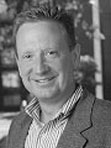 |
James Hartzfeld
Director, InterfaceFLOR, Co-Founder of the U.S. Green Building Council
Jim is a former Chairman of the Board of the U.S. Green Building Council and has worked with such organizations as the World Business Council for Sustainable Development, and the President's Council on Sustainable Development (PCSD) where he served as Ray Anderson's liaison. He continues working closely with the U.S. Green Building Council after having served two terms as Chairman of the Board.
|
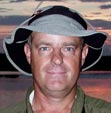 |
Peter Kaestner
Former U.S. Minister Counselor for Consular Affairs and Consul-General in New Delhi, India, and amateur Ornithologist
Peter Kaestner is one of the world’s top birders, having seen over 8200 species of birds. He is a trained biologist, having received a degree from Cornell University. In 1986, Peter became the first person in the world to see a representative of all of the world’s bird families. While living in Colombia in 1989, he discovered a new species of bird, Grallaria kaestneri, just 50 kilometers from Bogota. He is a prolific author and has penned scores of bird-related articles and has given many public lectures on birds and birding.
His connection with India began in 1967, when he was a student in New Delhi. He also lived in Delhi in 1981-82 and from 2006 to 2009. Through his long association with Delhi, he has experienced the transformation of the urban landscape from the post-colonial period until today – and its affects on the city’s birdlife. Along the way, Peter has seen 949 different kinds of birds in India.
|
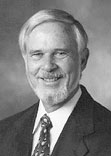 |
Prof. Gilbert M. Masters
Professor of Civil and Environmental Engineering (Emeritus) Renewable and Efficient Energy Systems at Stanford University
Prof. Masters specializes in the interrelationships between environmental quality and energy consumption. His main focus is on the design and evaluation of renewable energy systems and energy efficient buildings, and the impact that these pollution prevention technologies can have in helping to reduce global climate change and acid rain, improve urban air quality, and extend the life of nonrenewable energy resources. He has special interests in energy for development.
Professor Masters has been the recipient of a number of teaching awards at Stanford, including the Gores Award for Excellence in Teaching, and the Tau Beta Pi teaching award from the School of Engineering. He served as Associate Dean for student affairs for the School of Engineering from 1982-1986, and he was the Interim Chairman of the Department of Civil Engineering for the 1992-93 school year. He is also the author of Renewable and Efficient Electric Power Systems and Introduction to Environmental Engineering and Science.
|
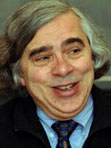 |
Prof. Ernest J. Moniz
Co-Director of the Laboratory for Energy and the Environment at MIT and Director of the MIT Energy Initiative
Dr. Ernest J. Moniz is a Professor of Physics at the Massachusetts Institute of Technology, where he has served on the faculty since 1973. Professor Moniz served as Under Secretary of the Department of Energy from October 1997 until January 2001. He also served from 1995 to 1997 as Associate Director for Science in the Office of Science and Technology Policy in the Executive Office of the President, where his responsibilities spanned the physical, life, and social and behavioral sciences, science education, and university-government partnerships. At MIT, Professor Moniz served as Head of the Department of Physics and as Director of the Bates Linear Accelerator Center. He is also a member of President Obama’s Council of Advisors on Science and Technology (PCAST).
Professor Moniz received a Bachelor of Science degree in physics from Boston College, a doctorate in theoretical physics from Stanford University, and honorary doctorates from the University of Athens and the University of Erlangen-Nurenburg. He is a Fellow of the American Association for the Advancement of Science, the Humboldt Foundation, and the American Physical Society and a member of the Council on Foreign Relations. In 1998, Professor Moniz received the Seymour Cray HPCC Industry Recognition Award for vision and leadership in advancing scientific simulation.
|
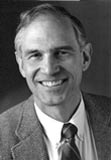 |
Prof. William Moomaw
Director of the Center for International Environment and Resource Policy at The Fletcher School of Law and Diplomacy and Professor of International Environmental Policy at Tufts University
Bill's teaching and research focus on issues such as quantitative indicators of environment and development;, sustainable development, trade and environment, technology and policy implications for climate change, water and climate change, biodiversity, and negotiation strategies for environmental agreements.
In addition to his roles at Tufts, Bill is Senior Co-Director, Global Development and Environment Institute Co-Director, Public Disputes Program, Program on Negotiations; Convening Lead Author, Intergovernmental Panel on Climate Change 2001; Board of Directors, Consensus Building Institute; Science Advisory Committee, Earthwatch; and Lead author, Intergovernmental Panel on Climate Change 2003. He has been the lead author on several major IPCC reports and has written extensively on strategies for sustainable energy systems.
|
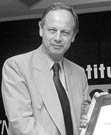 |
Mark Runacres
Senior Visiting Fellow at The Energy and Resources Institute (TERI), New Delhi and Former Minister and Deputy High Commissioner, British High Commission, India
Mark worked primarily in the renewable energy and carbon finance space, both in non-profit, primarily with The Energy and Resources Institute (TERI), New Delhi, at the invitation of Dr. R. K. Pachauri.
Mark is on the board of the Business and the Community Foundation, a leading Corporate Social Responsibility agency in Delhi. Mark is also acting as environmental adviser to the Commonwealth Games Organising Committee, and working on a range of social development projects linked to the 2010 Commonwealth Games, scheduled to be held in Delhi.
During his twenty five year career as a British diplomat, Mark spent over a decade working on Indian affairs, with eight of those years resident in Delhi, most recently as Minister and Deputy British High Commissioner until June 2006. Mark had served previously in the British Mission to the United Nations in New York and the British Embassy in Paris.
|
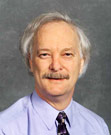 |
Dale Sartor
Lawrence Berkeley National Laboratory
Dale Sartor, P.E., heads the LBNL Building Technologies Applications Team which assists in the transfer of new and underutilized technology. Mr. Sartor has an AB in Architecture, and a Masters in Business Administration. He is a licensed Mechanical Engineer, and a licensed General Building Contractor. He has over thirty years of professional experience in energy efficiency and renewable energy applications including ten years as a principal of an architecture and engineering company, and seven years as the head of LBNL’s In-House Energy Management Program. Mr. Sartor oversees R&D at LBNL focused on energy efficiency in buildings for high tech industries (i.e. hospitals, laboratories, cleanrooms, and data centers). He is an active volunteer in professional organizations, and lectures extensively. He is an adjunct faculty member at the University of Hawaii, and has served as part time faculty at Cogswell College, College of Marin, and San Francisco State University.
|
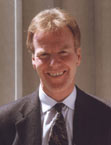 |
Dr. Peter M. Senge
Senior lecturer at MIT and founding chair of the SoL (Society for Organizational Learning) Council
Peter lectures extensively throughout the world, translating the abstract ideas of systems theory into tools for better understanding of economic and organizational change. His areas of special interest focus on decentralizing the role of leadership in organizations so as to enhance the capacity of all people to work productively toward common goals. Peter's work articulates a cornerstone position of human values in the workplace; namely, that vision, purpose, reflectiveness, and systems thinking are essential if organizations are to realize their potentials.
Dr. Senge is the author of The Fifth Discipline: The Art and Practice of the Learning Organization, co-author of the three related fieldbooks and most recently Presence: An Exploration of Profound Change in People, Society, and Organizations. The Fifth Discipline hit a nerve deep within the business and education community by introducing the theory of learning organizations. In 1997, Harvard Business Review identified it as one of the seminal management books of the past 75 years.
The Journal of Business Strategy named Peter as one of the 24 people who had the greatest influence on business strategy over the last 100 years. The Financial Times named him as one of the world’s "top management gurus." Business Week rated Peter as one of The Top (ten) Management "Gurus."
Peter received a B.S. in engineering from Stanford University, an M.S. in social systems modeling and Ph.D. in management from MIT. He lives with his wife and their two children in central Massachusetts.
|
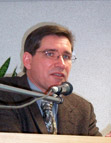 |
John Shonder
U.S. Department of Energy’s Oak Ridge National Laboratory (ORNL)
John Shonder is a Senior Mechanical Engineer at the U.S. Department of Energy’s Oak Ridge National Laboratory (ORNL). A member of ORNL’s Engineering Science and Technology Division, he has more than 20 years of experience in the design, implementation and evaluation of energy conservation projects at federal government sites. Shonder is Principal Investigator for ORNL’s support to DOE’s Federal Energy Management Program (FEMP), whose mission is to reduce the cost and environmental impact of the federal government by advancing energy efficiency and water conservation, promoting the use of renewable energy, and improving utility management decisions at federal sites. An internationally-recognized expert in geothermal heat pump technology, Shonder is an active member of the American Society of Heating, Refrigerating and Air Conditioning Engineers (ASHRAE), and currently serves as chair of Technical Committee (TC) 9.4, Applied Heat Pump Technology, and research chairman of TC 6.8, Geothermal Energy Utilization. He is also a past chair of TC 6.8. Shonder is the author of more than 50 publications on various aspects of ground source heat pumps.
|
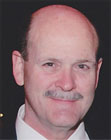 |
Steven White
Senior Foreign Service Officer (ret.), U.S. Department of State, and Former Deputy Chief of Mission of the American Embassy, India
During his 35 year career as an American diplomat, Steven served seven years in India, first as Minister-Counselor for Management Affairs and recently as Deputy Chief of Mission. Throughout his career, he was engaged in the construction, renovation, and operational management of some of the U.S. Government’s most extensive, historic, and valuable real property inventories abroad, most notably in India, Iraq, Austria, and the United Kingdom. Steven was instrumental in improving the energy efficiency of the iconic chancery in New Delhi, which was designed by the famous American architect Edward Durrell Stone and commissioned in 1959.
|
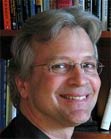 |
Sandy Wiggins
Chairman e3bank, Past Chair U.S. Green Building Council, Principal Consilience LLC
Known for his commitment to the future of the human family, Sandy has been a national leader in the Green Building revolution. Sandy is founder and principal of Consilience, LLC, a national real estate consultancy with a mission to build environmentally, socially and economically sustainable communities. He is the Past Chair of the Washington, D.C. based U.S. Green Building Council, and was Founding Chair of the Green Building Council Certification Institute. Sandy was also Founding Chair of the Philadelphia based Delaware Valley Green Building Council. He also currently serves on the City of Philadelphia's Sustainability Advisory Board, the Advisory Board of the Rutgers University Center for Green Building and as a juror for the Delaware Valley Smart Growth Alliance. During a three-decade career in the building industry, he has had responsibility for projects totaling over one billion dollars. His vision and leadership have been responsible for the development of dozens of LEED commercial projects and the nation's first LEED Gold certified homes, which were also net zero energy consumers. His skillful facilitation has also helped birth sustainable master plans for municipalities and institutional campuses as well as sustainable regional public policy initiatives.
|
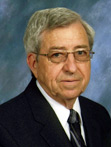 |
Dr. B. C. "Bill" Wolverton
President, Wolverton Environmental Services, Inc., author of How To Grow Fresh Air, and retired NASA scientist
Dr. Wolverton is recognized as one of the world's foremost authorities in the use of natural processes for environmental pollution control.
For 20 years, Dr. Wolverton was employed as a Senior Research Scientist with the National Aeronautics and Space Administration (NASA). His research efforts were directed toward the use of plants and their root microorganisms to develop future closed ecological life support systems for long duration space habitation. These studies utilized plants as a component of internal recycling of wastewater and the purification/revitalization of indoor air.
He has received numerous patents and awards for his pioneering research, including the Federal Environmental Engineer of the Year Award; induction into the U.S. Space Foundation's Space Technology Hall of Fame; the American Chemical Society’s “Heroes in Chemistry” Award; the National Society of the Daughters of the American Revolution “Conservation Medal” and the “Award of Excellence” presented by the National Council of State Garden Clubs, Inc
He has published more than seventy technical papers and has lectured throughout the world. He has written two books. Eco-Friendly Houseplants has been translated into thirteen languages. It was published in the U.S. as How to Grow Fresh Air. He and a colleague have just completed a new book scheduled for release in March 2009 and tentatively entitled, Plants: How They Contribute to Human Health and Well Being.
|
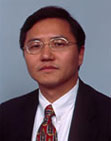 |
Dr. Jianshun "Jensen" Zhang
Professor and Director, Building Energy and Environmental Systems Laboratory, Syracuse University
Dr. Zhang received his Ph.D. from University of Illinois at Urbana-Champaign, and served as a Research Officer of National Research Council of Canada for eight years before he joined Syracuse University in 1999. He also served as Visiting Professor at Danish Technical University (2007 & 08), University of Tokyo (2007) and Tsinghua University (2007). He has over 20 years of research experience in Built Environmental Systems (BES). He studies heat, air, moisture and pollutant transport in buildings; pollutant emissions from building materials, furnishings and office equipments; air filtration/purification and intelligent control of building environmental systems. He has developed advanced experimental methods, computer simulation models and environmental control technologies. He has authored/co-authored over 100 technical papers, 1 book, and 2 ASTM standard methods and 1 ANSI/BIFMA standard for testing organic emissions from building materials and furnishings. He is a Member of the Editorial Board of “The International Journal of Ventilation”, “Journal of Building Physics”, and “Building Simulation - an International Journal”. He is a research leader of the New York Strategically Targeted Academic Research Center for Environmental Quality Systems (EQS-STAR Center), and serves as Associate Director of Systems Integration for the Center.
Dr. Zhang serves on ASHRAE’s Environmental Health Committee (2006-present), Research Activity Committee (2003-2006), and several Technical and Standard Committees including TC 4.3 Ventilation and Infiltration, TC4.10 Indoor Environmental Quality (which he chaired in 1997-99), TC 5.3 Room Air Distribution, and SPC 113 Method of Testing for Room Air Diffusion. He is also a Voting Member of ASTM D22.05 on Indoor Air, a Member of Air and Waste Management Association (AWMA) and International Society for Indoor Air and Climate (ISIAC). He will chair IAQVEC2010: The 7th International Conference on Indoor Air Quality, Ventilation and Building Energy Conservation in Buildings, Syracuse, New York, August 15-18, 2010.
|
|
|
|

